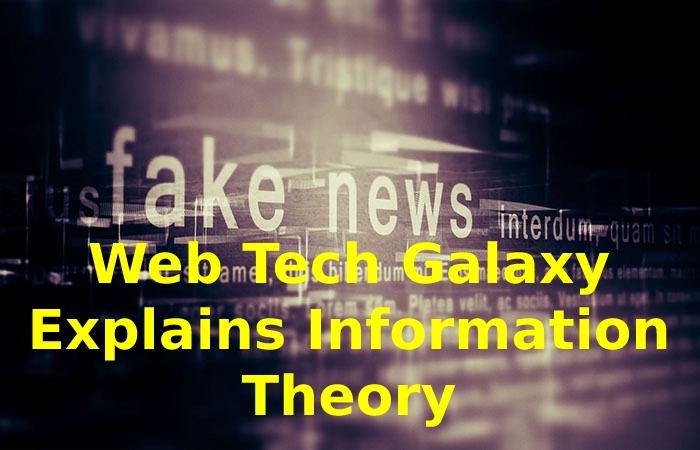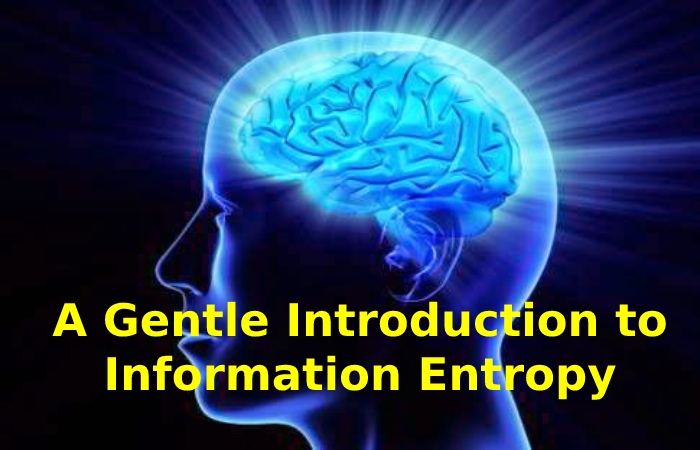Table of Contents
Information Theory The Big Idea Reading Answers
What Does Information Theory Mean? Information Theory The Big Idea Reading Answers.
Information Theory The Big Idea Reading Answers – Information theory is an element of maths that defines theoretical and practical methods to exchange data. The main idea was deliberate by Claude Shannon, a famous mathematician. It has many options that can remain used in digitial technology to improve the firms’ business.
Web Tech Galaxy Explains Information Theory – Information Theory The Big Idea Reading Answers

Information Theory The Big Idea Reading Answers – Prior to information theory, electronic communication mainly was through analog transmission, which worked well enough in short distances. Still, it became problematic as the distances increased and signals degraded. Claude Shannon was an employee of Bell Labs (the research and development arm of the Bell Telephone Company) during the mid-twentieth century and worked on improving electronic communication during the Second World War to make it more efficient and secure.
Shannon’s research was eventually published in a book called “The Mathematical Theory of Communication” (co-written with Warren Weaver) and laid the groundwork for much of modern digital technology, such as the implementation of binary code.
A Gentle Introduction to Information Entropy – Information Theory The Big Idea Reading Answers

Information Theory The Big Idea Reading Answers – Information theory is the main subject of mathematics-related with transferring data around the channel of contacts. The central concept of information theory is calculating how much knowledge is there in the message. Moreover, this can calculate the information in a function and random variable, called Entropy calculated using probability.
Calculating information and Entropy is a valuable tool in machine learning. It uses as the basis for feature selection, building decision trees, and, more generally, fitting classification models. As such, a machine learning practitioner requires a strong understanding and intuition for information and Entropy.
Information theory is the scientific research of digital technology’s calculation, storage, and communication. It was mainly established by Harry Nyquist and Ralph Harley in the 1920s and Claude Shannon in the 1940s. The concept is the union of probability theory, statistics, computer science, electrical engineering, mechanics, and information engineering.
Brief Information – Information Theory The Big Idea Reading Answers
The central aspect in the information theory is Entropy. It calculates the number of problems involved in the number of a different variable or the out result of the process. For example, the two sides of a coin reprise one side as lower Entropy. Some other vital steps in information theory are compatible. Necessary fields of information theory contain source codes, algorithms, algorithmic information theory, and information security.
Apps of fundamental points of information theory contain lossless data compression, lossy data compression, and channel coding. It will mainly affect the success of Voyager missions to deep space, the launch of compact discs. The advantages of mobile phones, and the growth of the Internet. The information theory has also been found helpful in other fields such as statistical inference, cryptography, neurobiology, perception, linguistics, the evolution and function of molecular codes.
What is the Importance of Information Theory?
Information Theory The Big Idea Reading Answers – Mind-expanding theory allows grasping the concept of information as quantum particles and discussing theories of rates and means of transmitting information at accelerated velocities, which entails a higher degree of noise. Moreover, the mere idea that it is possible to calculate how information transmission rates correlate with increased noise levels is staggering. Claude Shannon’s invention of information theory made the electronic revolution since the 1940’s possible. It is also what made Stephen Hawking’s remarkable research (“The Information-Loss Paradox”) on Black Holes fascinating. The idea that ‘information is something that resists Entropy is a massive stroke of genius.
Also Read: The Influence Of Social Networks In Everyday Life
